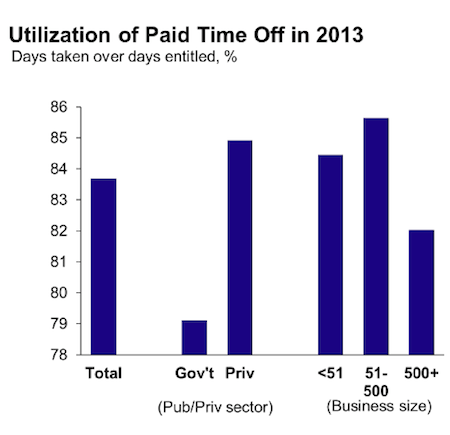Skift Take
Corporations are very short-sighted if they pressure employees to stay behind their desks when they have vacation time pending and the surf's up.
Forty percent of U.S. workers didn’t use all of their vacation days in 2013, a development that is not only bad for the travel industry, but foolhardy for U.S. corporations as a whole.
Those are some of the findings in a new Oxford Economics study, “An Assessment of Paid Time Off in the U.S.” [The study is embedded below.]
While most industrial economies mandate paid time off, the U.S. doesn’t and the report found that U.S. employees on average left 3.2 vacation days unused in 2013, or 16% of their eligible vacation time.
Think about that 3.2 day number: That’s a big chunk of a week’s vacation that gets sacrificed annually.
In addition to the lack of a vacation mandate in the U.S., the Oxford Economics study found that peer pressure, corporate enablement and heavy work loads were prime factors behind the wasted vacation time.
“The benefits of time off are widely recognized and include more dedicated, productive, satisfied and healthy employees,” the study found.
For the travel industry, turning the unused vacation days — 580 million travel days — into leisure trips would spur $67 million in additional travel spending, the study found.
And, the total economic impact would be $52 million in additional income earned and the addition of 1.2 million jobs, according to Oxford Economics.
Oxford Economics surveyed 971 U.S. employees about their paid time off, and correlated those responses with the U.S. employment base to assess the economic impact of unused vacation time.
The Daily Newsletter
Our daily coverage of the global travel industry. Written by editors and analysts from across Skift’s brands.
Have a confidential tip for Skift? Get in touch
Tags: vacations
Photo credit: Spending a little more time at the beach and using allotted vacation days makes for less stress and more productive employees, an Oxford Economics study finds. Wayne Parry / Associated Press
